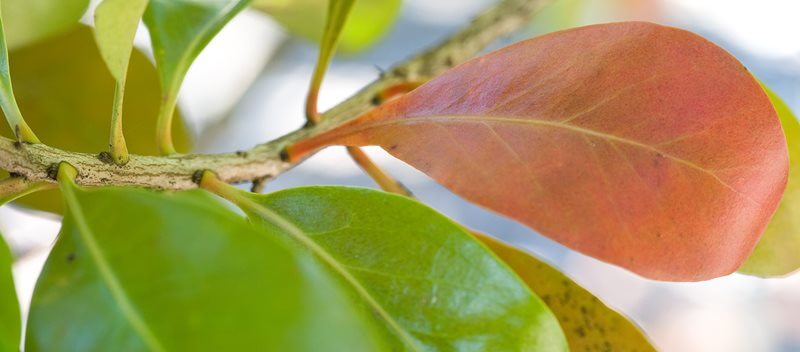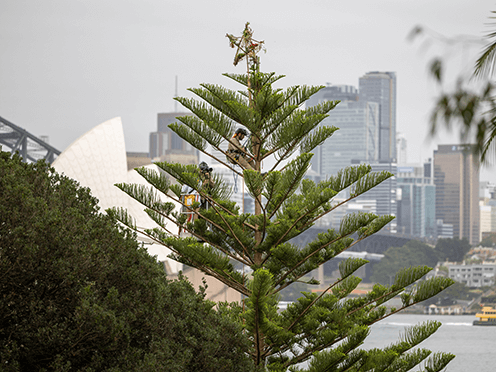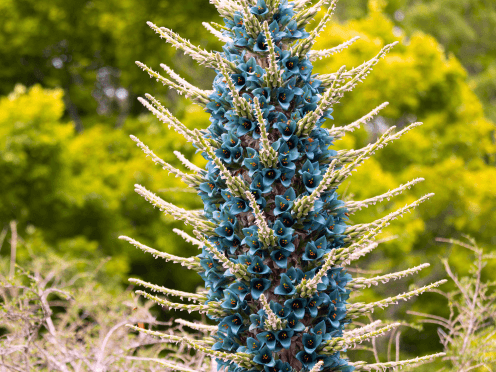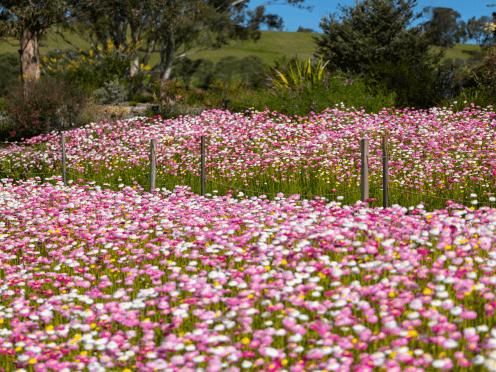Protecting plants, protecting life
In the year ahead we will not only be commemorating the visit of Joseph Banks and Daniel Solander to the east coast of Australia with James Cook 250 years ago, but we will also be recognising the importance of plant health to humanity and our environment.

The United Nations have designated 2020 as the International Year of Plant Health with the aim of increasing awareness of the importance of healthy plants and the necessity to protect them. The impact of pests and diseases on plants, whether they are grown for food and fibre, for our gardens or in the natural environment cannot be overestimated.

Plants at risk
Today, up to 40 percent of global food crops are lost annually due to plant pests – this is critical as we need to provide food for more and more people. In terms of economic value, plant diseases alone cost the global economy around US$220 billion annually and invasive insects around US$70 billion.
We have recently seen the arrival of Panama Disease of bananas into Latin America with the potential of dramatically impacting the supply of bananas into the US and Europe markets and with the potential of devastating the economies of countries like Colombia and Ecuador.
In our bushland diseases like Myrtle Rust and Phytophthora root rot are sending species closer to extinction and there are plenty more pests and pathogens waiting to come into the country to cause even more havoc. Botanic gardens obviously have a very strong interest in maintaining plant health – it is key to being able to produce our fantastic displays and in protecting rare and threatened species that are at risk from extinction.
Understanding plant diseases and threats
Despite the importance of plant health we are one of the few botanic gardens around the world with an active plant pathology research and diagnostic capability so we play an important role nationally in raising awareness of the impact of plant diseases in horticulture and in the natural environment.
Botanic Gardens Conservation International, the peak body for botanic gardens, developed several years ago the concept of an International Plant Sentinel Network, where botanic gardens play a role in detecting new arrivals of insect pests and disease causing organisms such as fungi, bacteria and viruses.
Of course botanic gardens can also play a critical role in raising awareness of the importance of plant health – again we are leading the way, thanks to the Foundation and Friends of the Gardens, with our interpretation and opening up of the PlantClinic facility at the Royal Botanic Garden Sydney. Our Australian botanic garden community has recently teamed up with Plant Health Australia to develop a plant health sentinel network across gardens nationally.
Why botanic gardens matter
Botanic gardens are one of the most visited tourist destinations in Australia with many millions of visitors each year, a great proportion of them from overseas. So it makes sense that one of the most likely places where a new disease or pest incursion to occur would be in a botanic garden – the environment is usually favourable, there are a diversity of different potentially susceptible host plants and the gardens are often the first place visited when tourists get off a plane (what better way to walk off the jet lag!).
A group of target diseases and pests have been selected for surveillance in the first component of the program and a number of horticultural staff from most of the major botanic gardens trained in detection methods, monitoring and reporting.
The next component of the program will be extending this knowledge to volunteer groups like the Foundation and Friends of the Gardens at a ”bootcamp” run by Plant Health Australia in Melbourne to start to build this expertise which can then be extended more widely, not only into the Gardens but also into community gardens and bushland.
As we say often Plants = Life and healthy plants are the foundation of a healthier life, more effective ecosystem functions and improved food security. Plant pests and diseases damage crops, reducing the availability of food and increasing its cost.
Sustaining plant health protects the environment, forests and biodiversity from plant pests, addresses the effects of climate change, and supports efforts to end hunger, malnutrition and poverty. The International Year of Plant Health will be a great opportunity to once again stress the importance of plants and overcome some of that "plant blindness."
If you would like to find out more about how we work to future-proof our planet book a tour at the Australian PlantBank or get in touch with the Foundation and Friends of the Garden to support our ongoing scientific research.
If you are a journalist and have a media enquiry about this story, please click herefor contact details and more information.
Related stories

Discover the Royal Botanic Garden Sydney's very own "Christmas trees" - a festive trio of pretty pines from a lineage stretching all the way back to the time of the dinosaurs.

An extraordinary display of rare turquoise blooms are starting to flower at the Blue Mountains Botanic Garden Mount Tomah, with one species blooming for the first time ever.

One of the largest paper daisy displays in eastern Australia is in flower at the Australian Botanic Garden Mount Annan.